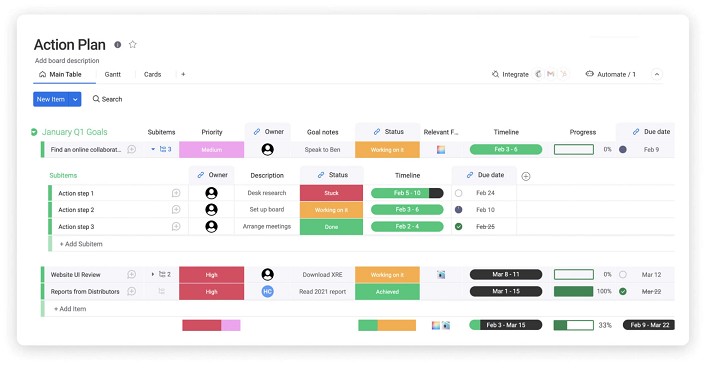Should You Take Ozempic? A Comprehensive Guide To GLP-1 Receptor Agonists

Table of Contents
What are GLP-1 Receptor Agonists and How Do They Work?
GLP-1 receptor agonists are a class of medications that mimic the effects of glucagon-like peptide-1 (GLP-1), a naturally occurring hormone in the body. These medications are primarily known for their effectiveness in managing type 2 diabetes and promoting weight loss. Ozempic, containing the active ingredient semaglutide, is one of the most well-known drugs in this class. Others include Wegovy (also semaglutide, but at a higher dose), Trulicity (dulaglutide), and Mounjaro (tirzepatide). They work through several key mechanisms:
- Increased insulin release: When blood sugar levels rise, GLP-1 agonists stimulate the pancreas to release more insulin, helping to lower blood glucose levels.
- Decreased glucagon secretion: Glucagon is a hormone that raises blood sugar. GLP-1 agonists suppress glucagon secretion, further contributing to better blood sugar control.
- Delayed gastric emptying: This slows down the rate at which food leaves your stomach, leading to a feeling of fullness and increased satiety.
- Appetite suppression: GLP-1 agonists directly affect areas of the brain that regulate appetite, leading to a reduction in food intake.
Ozempic for Weight Loss: Benefits and Risks
Ozempic has shown significant promise in promoting weight loss. Clinical trials have demonstrated an average weight loss of up to 15% in individuals taking Ozempic, a far greater result than many other weight-loss methods. This weight loss is often accompanied by improvements in other metabolic parameters:
- Significant weight loss potential: Studies show impressive weight reduction, significantly impacting overall health.
- Improved metabolic parameters: Many patients experience reductions in cholesterol levels and blood pressure.
- Side effects and management: Common side effects include nausea, vomiting, constipation, and diarrhea. These are often mild and transient, but some individuals may experience more severe effects. Strategies such as starting with a low dose and gradually increasing it can help mitigate these side effects.
- Long-term effects: While long-term studies are still ongoing, current research suggests that the benefits of weight loss and improved metabolic health may be sustained with continued use. However, potential long-term risks are still under investigation.
Ozempic for Type 2 Diabetes Management
Ozempic is a valuable tool in managing type 2 diabetes. By improving insulin secretion and reducing glucagon levels, it effectively helps regulate blood sugar:
- Improved glycemic control: Ozempic significantly lowers blood sugar levels, reducing the risk of diabetes-related complications.
- Reduced HbA1c levels: Lower HbA1c levels indicate better long-term blood sugar control.
- Combination therapy: Ozempic can be used in conjunction with other diabetes medications for optimal glycemic control in some individuals.
- Patient suitability: Kidney function is a crucial factor determining suitability. Individuals with severe kidney disease may not be candidates for Ozempic.
Ozempic: Cost, Insurance Coverage, and Accessibility
The cost of Ozempic can be substantial, and accessibility varies based on insurance coverage and individual financial situations:
- Cost comparison with other medications: The price of Ozempic can be higher than some other diabetes medications, but the potential cost savings associated with improved health outcomes should be considered.
- Insurance coverage options: Many insurance plans cover Ozempic, but coverage specifics vary.
- Financial assistance programs: Manufacturers often offer patient assistance programs to help offset the cost of the medication for those who qualify.
Alternatives to Ozempic: Other GLP-1 Receptor Agonists and Weight Loss Strategies
Ozempic is not the only GLP-1 receptor agonist available. Other options include Wegovy, Trulicity, and Mounjaro, each with its own strengths and weaknesses:
- List of alternative medications: Each medication has a unique profile regarding efficacy, side effects, and administration methods.
- Lifestyle changes for weight management: A holistic approach combining medication with dietary changes, regular exercise, and behavioral therapy is often the most effective long-term weight-loss strategy.
- Consulting a healthcare professional: It's crucial to discuss all treatment options with a healthcare provider to determine the best approach for your individual needs and health circumstances.
Conclusion:
Ozempic and other GLP-1 receptor agonists have shown significant promise in managing type 2 diabetes and promoting weight loss. However, it's crucial to understand the potential benefits and risks before starting treatment. The decision to use Ozempic or any other medication should be made in consultation with a healthcare provider who can assess your individual medical history and needs, taking into account potential side effects and interactions with other medications. Discuss Ozempic with your doctor to determine if it's the right choice for you, or explore other GLP-1 receptor agonists or alternative weight loss strategies to find the best solution for your specific health goals. Remember, a personalized approach to weight management and diabetes care is key.

Featured Posts
-
 Duenyanin En Degerli Sporcusu Cristiano Ronaldo Nun Marka Etkisi
May 28, 2025
Duenyanin En Degerli Sporcusu Cristiano Ronaldo Nun Marka Etkisi
May 28, 2025 -
 Erik Ten Hag 10 Key Facts About The New Bayer Leverkusen Manager
May 28, 2025
Erik Ten Hag 10 Key Facts About The New Bayer Leverkusen Manager
May 28, 2025 -
 The 99th Minute And Nine Lost Points Ajaxs Season Defining Collapse
May 28, 2025
The 99th Minute And Nine Lost Points Ajaxs Season Defining Collapse
May 28, 2025 -
 Where To Invest A Map Of The Countrys Hottest Business Locations
May 28, 2025
Where To Invest A Map Of The Countrys Hottest Business Locations
May 28, 2025 -
 La Fire Aftermath Landlords Face Backlash Over Rent Increases
May 28, 2025
La Fire Aftermath Landlords Face Backlash Over Rent Increases
May 28, 2025
Latest Posts
-
 The Growing Problem Of Drug Addicted Rats In Houston
May 31, 2025
The Growing Problem Of Drug Addicted Rats In Houston
May 31, 2025 -
 Mastering Office Lunch Etiquette 6 Essential Rules
May 31, 2025
Mastering Office Lunch Etiquette 6 Essential Rules
May 31, 2025 -
 Minimalist Lifestyle In 30 Days A Step By Step Plan
May 31, 2025
Minimalist Lifestyle In 30 Days A Step By Step Plan
May 31, 2025 -
 The Six Golden Rules Of Office Lunch Etiquette
May 31, 2025
The Six Golden Rules Of Office Lunch Etiquette
May 31, 2025 -
 The 30 Day Minimalist Challenge Simplify Your Life In One Month
May 31, 2025
The 30 Day Minimalist Challenge Simplify Your Life In One Month
May 31, 2025
